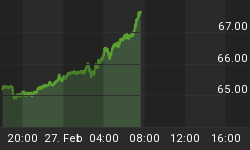Courtesy of Bloomberg News - Senator Max Baucus, the Montana Democrat who has centered his 37-year congressional career on attempts to build bipartisan consensus, is preparing to take on the U.S. tax code.

Max Baucus, a Montana Democrat, was
one of the authors of the 2010 health care
law, which included tax increases. On the
other hand, he supported the 2001 tax cuts
that were opposed by most Democrats.
Photo: Andrew Harrer/Bloomberg
Baucus, chairman of the Senate Finance Committee, plans to outline his principles for a tax overhaul June 11. He has met with lawmakers of both parties in advance of the speech, and those conversations probably will help him determine what can be achieved, said Evan Liddiard, a former tax adviser to Senator Orrin Hatch, a Utah Republican.
"When he gets up and talks about his vision, it's likely already kind of a consensus of where he thinks his members are and what he thinks he can accomplish," said Liddiard, now a tax lobbyist.
Baucus has announced plans to seek a seventh term in 2014 in a state that often supports Republicans. He faces multiple pressures on the tax policy front.
Many Democrats, including President Barack Obama, want to generate more tax revenue, particularly from high-income earners and multinational companies' overseas operations. The Republicans whose votes Baucus would need to move major tax legislation in the Senate want to avoid such increases and lessen the tax burden on corporate foreign income.
Tax Increases
Baucus was an author of the 2010 health-care law, which included tax increases for health-related businesses and top earners. Meanwhile, he supported the 2001 tax cuts that were championed by President George W. Bush and opposed by most Democrats.
"He's always been quite pro-business and easy to work with for people like Senator Hatch and other Republicans," Liddiard said. "I think he's always walking a line between where the more liberal part of his caucus is and where he might want to be."
Baucus's speech comes amid a congressional debate on how to address the end-of-year "fiscal cliff," which includes the expiration of the Bush-era tax cuts that were extended in 2010. If Congress doesn't act by Dec. 31, tax rates for wages, capital gains, dividends and estates will increase.
Obama and many Democrats want to let tax cuts for the top- earning 2 percent of households expire. Republicans want at least a one-year extension of all the tax cuts.
Representative Dave Camp, chairman of the House Ways and Means Committee, has suggested a fast-track process under which Congress would act in 2013. Camp is a Michigan Republican who last year released a draft of international tax changes and who wants to reduce top rates to 25 percent.
Overhaul's Timing
Senator Ron Wyden, an Oregon Democrat on the Finance Committee, said he was particularly interested in hearing Baucus's comments on the timing of a tax overhaul. Without something else on the table, Wyden said, that will create pressure to keep extending the expiring tax cuts, year after year.
"The psychology of seeing bipartisan tax reform would be considered a real plus," said Wyden, who has proposed a bipartisan tax overhaul with Indiana Republican Dan Coats. "The business community likes it, because we're talking about job creation and pro-growth. And Republicans are going to pick up on that message. And Democrats like the fact that you're going after tax loopholes and special preferences."
Baucus has been laying the groundwork for a tax code overhaul through hearings and meetings over the past year and a half, said a Finance Committee aide. He recognizes, the aide said, that building consensus is necessary for such a massive effort.
Senator Grassley
Baucus met with Senator Charles Grassley, an Iowa Republican, about three weeks ago to discuss a tax overhaul, Grassley said.
Baucus's method on this issue is the same as it has always been, Grassley said. He talks to members, he wants the committee to function and he wants to produce legislation. Grassley said the "black cloud" over the process is the Democratic leadership that he said interferes with Baucus.
Some Democrats and advocacy groups criticized Baucus's attempts to seek Republican votes for the health-care measure, saying it was a wasted effort that sapped time and political momentum for the overhaul. Grassley was one of the Republicans Baucus unsuccessfully courted.
Other than describing the speech as being about "principles," Baucus hasn't provided clues about what he might say.
'Awfully Hard'
"It's awfully hard for somebody to go first with regard to details," said Mel Schwarz, a partner at Grant Thornton LLP in Washington who said details about removing or limiting tax breaks are what would provoke opposition.
The speech will be seen as noteworthy if Baucus provides details, said Michael Linden, director of tax and budget policy at the Center for American Progress, a Washington group aligned with Democrats.
"Any specifics at all would be appreciated," he said. "Which tax expenditures are most in need of reform? Which ones are not? How should we reform them?"
Those details will be particularly interesting if and when Baucus provides them, Linden said, because of his essential position on tax policy.
Baucus, he said, "knows better than anybody just how difficult a real tax reform is going to be."
To contact the reporter on this story: Richard Rubin in Washington at rrubin12@bloomberg.net
To contact the editor responsible for this story: Jodi Schneider at jschneider50@bloomberg.net















